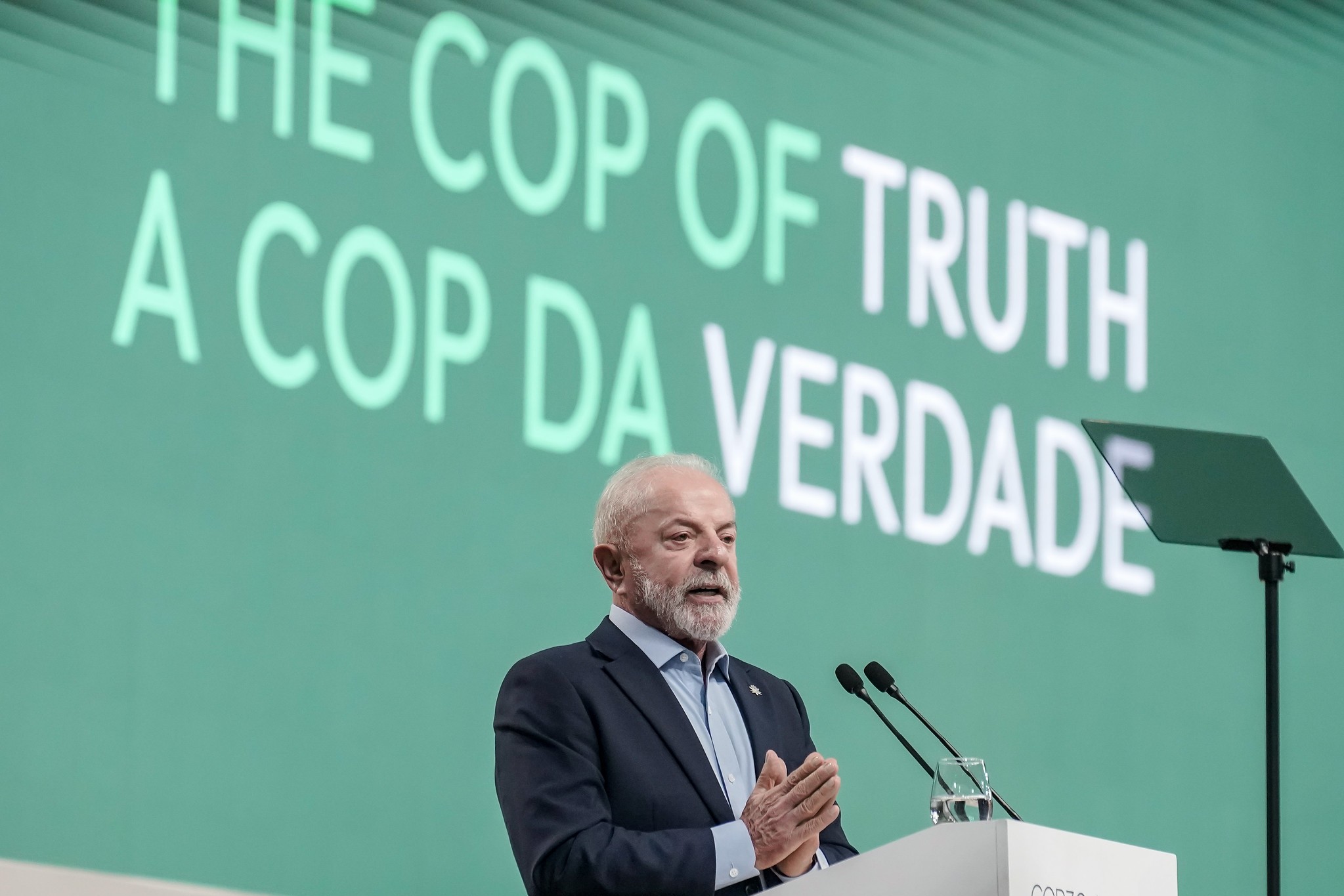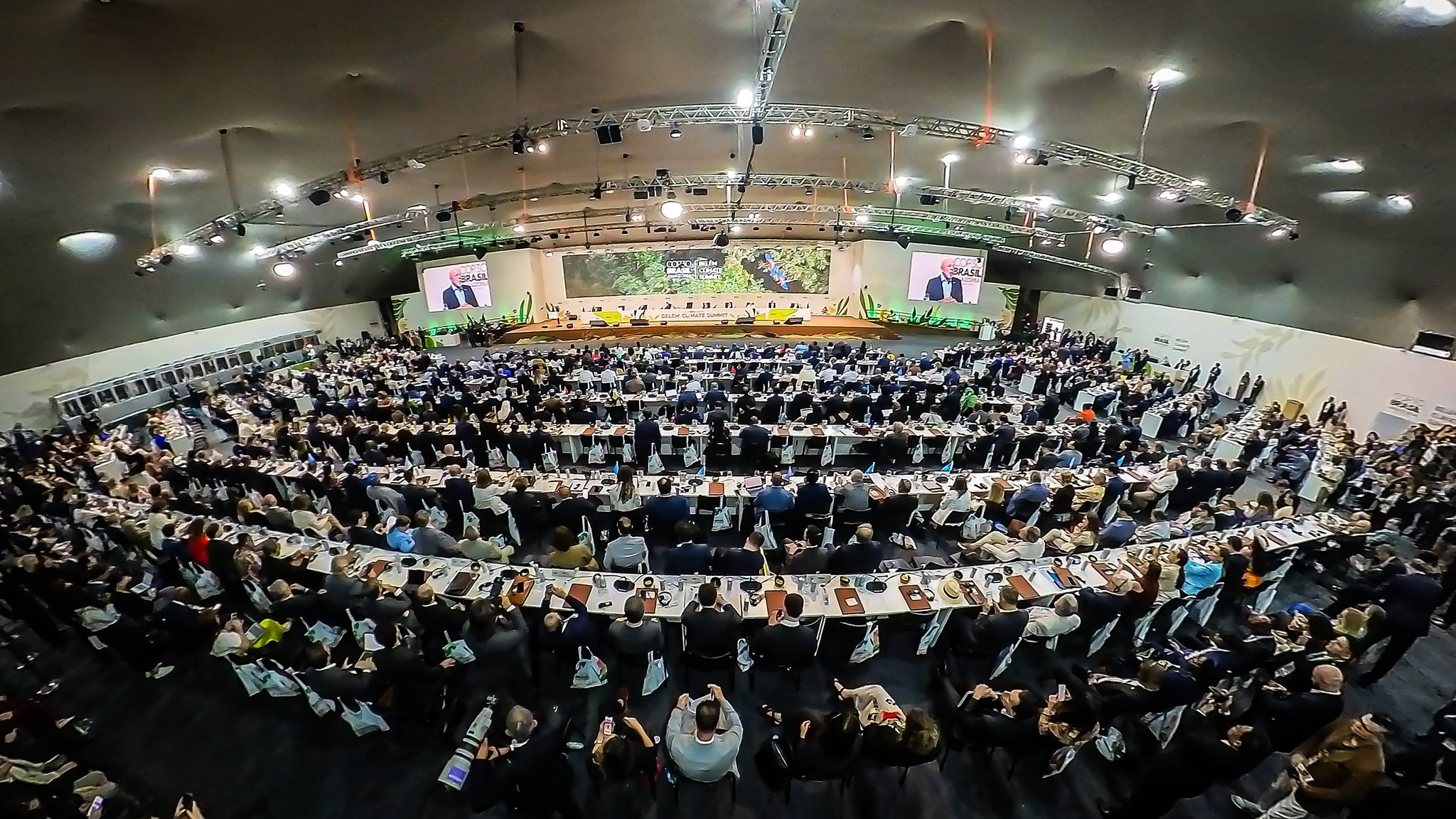Accelerating the Global Energy Transition and Safeguarding Nature are the Most Effective Pathways to Mitigating Global Warming,” stated President Lula in Opening Session of the Belém Climate Summit
The event brings together leaders from 153 delegations with the aim of strengthening political coordination ahead of the COP30 negotiations, which begin next Monday, November 10

By Mayara Souto/COP30
The Belém Climate Summit began on Monday, November 6, bringing together leaders from 153 delegations around the world. During the opening ceremony, the President of Brazil, Luiz Inácio Lula da Silva, emphasized the urgency of protecting forests and accelerating the energy transition.
“Accelerating the energy transition and safeguarding nature are the two most effective ways to curb global warming. Despite our challenges and contradictions, we need roadmaps that allow us to reverse deforestation, overcome dependence on fossil fuels, and mobilize the resources required to achieve these goals in a fair and planned manner,” stated the President.
President Lula began his address to heads of state by underscoring the symbolic significance of holding the conference in the Amazon—the largest tropical forest on the planet. “For the first time in history, a Climate COP will take place in the heart of the Amazon. In the global imagination, there is no greater symbol of the environmental cause than the Amazon rainforest. Here flow the thousands of rivers and streams that form the largest watershed on Earth. Here live the thousands of plant and animal species that make up the most diverse biome on the planet.”
The Brazilian President warned that this vast natural heritage is also under threat from the impacts of climate change.“The year 2024 was the first in which the Earth’s average temperature exceeded one and a half degrees above pre-industrial levels. Science already indicates that this increase will persist for some time, or even decades, but we must not abandon the goal of the Paris Agreement,” he said, referring to the global target of limiting planetary warming to 1.5°C.
President Lula noted that humanity has been aware of the impacts of the climate crisis for more than three decades.
“Humanity has been conscious of the impact of climate change for over 35 years, since the publication of the first IPCC report. Yet it took 28 conferences before, in Dubai, the need to move away from fossil fuels and to halt and reverse deforestation was formally acknowledged. An additional year was required before, in Baku, the prospect of scaling up climate finance to US$1.3 trillion was admitted,” he observed.
Throughout his address, the President set the tone for the Belém Climate Conference:“COP30 will be the COP of truth. It is time to take the warnings of science seriously. It is time to face reality and decide whether we have the courage and determination needed to transform it.” President Lula reaffirmed that the climate crisis—by its global and interdependent nature—can only be effectively addressed through international cooperation and the strengthening of multilateralism.
President Lula also emphasized that addressing the climate crisis will require bridging the gap between the technical language of negotiations and the everyday experiences of people. “People may not understand what emissions or metric tons of carbon are, but they feel pollution. They may not grasp the concept of carbon sinks or climate regulators, but they recognize the value of forests and oceans.” By affirming that climate change must be at the center of decision-making for every government, business, and citizen, the President reinforced the spirit of collective mobilization that defines Belém and guides the direct engagement of civil society, Indigenous peoples, traditional communities, and local governments.

Implementation
In his address, United Nations Secretary-General António Guterres also underscored the importance of forests and the energy transition as essential pillars for curbing global warming and strengthening the multilateral framework.
This COP must mark the beginning of a decade of acceleration and results. First and foremost, countries must agree on an ambitious and credible response plan to truly limit temperature rise to 1.5°C. Responsibilities must be shared and differences respected, but that cannot be an excuse for nations to avoid doing their part,” stated UN Secretary-General António Guterres. He added: “This means advancing renewable energy, electrification, and energy efficiency; building modern grids and large-scale storage; and halting and reversing deforestation by 2030.”
Guterres further emphasized that the time for action has arrived—and no longer merely for signing climate agreements. “This is no longer the time for negotiations. It is time for implementation, implementation, and implementation,” he stressed.
Call to Action
During his address, President Lula also explained that the Summit, held in advance of COP30, is a Brazilian initiative aimed at mobilizing political forces and promoting concrete actions to confront the climate crisis.“This Summit is an innovation we bring to the COP universe. The areas of convergence are already known. Our objective will be to confront the divergences. We, as leaders, can and must discuss everything—beyond the walls of the Convention. The words spoken here will serve as the compass for the journey our delegations will undertake over the next two weeks,” he concluded.
Translation: Michel Emmanuel Félix François (POET/UFC)
Proofreading: Tadeu Azevedo (POET/UFC)
